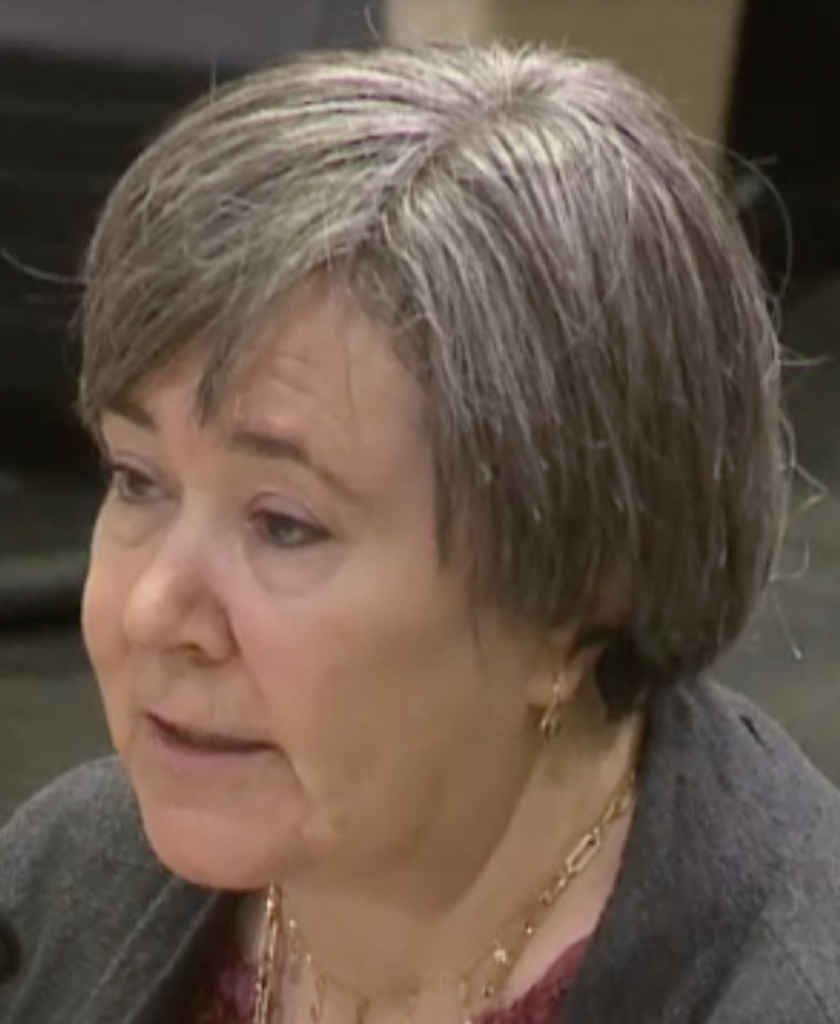City officials’ personal financial disclosures are meant to reveal whether they have substantial conflicts of interest in policy matters that they handle, such as a stake in a business being awarded a contract, or ownership of real estate whose value may be increased through rezoning.
But council members’ sworn financial disclosures aren’t readily available to the public. They are not published online.
The Bulldog routinely files public information requests to obtain these records for officeholders and candidates and publishes them on this website.
The city’s Ethics Review Commission, an advisory body that also handles certain enforcement matters, passed a motion in July 2022 to require the City Clerk to publish all financial disclosures on the City’s website.
The commission also voted unanimously to recommend that the council tweak an ordinance governing disclosure of city officials’ real estate holdings through business entities.
Eight months later, the council still hasn’t acted on the recommendations and thus far has shown no inclination to do so.
Audit and Finance Committee unresponsive
At three recent meetings of the Council’s Audit and Finance Committee, Ethics Review Commission Member Betsy Greenberg urged the council to take action on the recommendations. “If you are in favor of transparency, please talk about these code changes,” she said December 13th.

At the January 18th meeting, she said, “As council members one of your important responsibilities is making decisions about land use and members of the public need to be assured that the mayor and council members do not have conflicts of interest when making these decisions.”
Greenberg’s term on the commission expired February 28th.

Mary Kahle, another member of the commission, expressed her support for the proposed code changes, saying at the January meeting, “Both resolutions are designed to improve accountability and transparency around the important land use decisions that frequently go before city council for resolution.”
City Council Member Alison Alter, the chair of the committee, had no comment in response to commissioners’ remarks at any of these meetings. But Greenberg received an email reply from Alter’s chief of staff in December, telling her that none of the council members were interested in sponsoring the ethics commission’s proposals.

“At this time no other Council office has presented themselves to us as wishing to sponsor this item but if you identify one please let us know and feel free to tell them that we are happy to work with them,” wrote Kurt Cadena-Mitchell, the council aide, in a January 12th email.
He added, “We do have some questions and concerns about some of the language which we would plan to address if and when this item has a lead sponsor identified.”
Amelia Casas, the policy and communications advisor for Council Member Vanessa Fuentes, another committee member, told the Bulldog, “Although she supports these recommendations, Council Member Fuentes is unable to comment at this time.”
‘Substantial interest’
Current code [Section 2-7-72 E(9)] already requires council members and candidates to disclose all of their real estate holdings. But it only requires disclosure of real estate held through a trust or business entity if the filer owns at least five percent of that entity.
That means that a council member theoretically could have a stake in a large real estate project worth millions, but not have to disclose it, if their equity stake was less than 5 percent.
The ethics commission recommended changing “five percent” to “substantial interest” in this section of the code, which is defined to mean “an interest in real property which is an equitable or legal ownership with a market value of $5,000 or more.”
Keeping tabs on citizen requests
Candidates and council members in Austin currently must file two types of disclosure: a Personal Financial Statement (PFS) required by state law and a Statement of Financial Interest (SFI) required by City Code. Scores of high-ranking city staff are also required to file SFIs.
The state form, the PFS, only needs to be retained for two years. After that, state law allows the city clerk to destroy it. In fact, the clerk must destroy it upon request of a filer.
Section 145.007(c) of the Local Government Code states, “The clerk or secretary of the municipality may, and on notification from a former officer or candidate shall, destroy any financial statements filed by the officer or candidate after the second anniversary of the date the person ceases to be an officer or candidate, as applicable.”
Moreover, the clerk must also keep a record of any person requesting the PFS, their address, “whom they represent,” and the date of the request, according to the law.
This requirement allows officials to keep tabs on who requests access to their financial disclosures. Clearly, it would be made obsolete if the statements were published online rather than just kept in a file at City Hall.
The statute, which dates to 2003, isn’t clear about whether a city can publish PFS forms online. Although it designates the forms as “public records,” the wording suggests that lawmakers only envisioned disclosure of these forms upon request—not general publication of the forms.
Balancing privacy and transparency considerations
The city’s disclosure form, the Statement of Financial Information (SFI), isn’t governed by the same laws. For instance, the city code doesn’t specify that these records have to be destroyed after two years upon request of a former candidate.
Nevertheless, when the ethics commission passed its recommendation at its meeting July 27, 2022, members did discuss whether candidate disclosures should be online permanently.

“When someone signs up for public service there’s sort of a transparency interest that’s immediately brought to life,” said Luis Soberon, chair of the commission. “But for someone who decided to run for office and then, say, suspended their campaign halfway through because they had a change of heart or didn’t win and decided I never want to have anything to do with government ever in my life, having a semi-permanent, full-disclosure of their financial affairs may not be completely fair.”
One commissioner, Michael Lovins, even proposed that the city shouldn’t publish any personal financial information about candidates during the campaign. Lovins moved to amend the commission’s recommendation. He said the city should only publish the forms submitted by sitting council members.
“When they’re just a candidate and not yet actually having the authority to do anything or vote on anything, I would prefer to keep that (offline). It’s a public record… (but) exposing people to that level (of scrutiny) I think is a deterrent to getting people involved. It gives me some pause.” As the Bulldog reported last September, 13 of the 34 candidates running for mayor and council in the 2022 elections failed to file one or both of the reports that shed light on their personal finances. Failure to file these statements is a criminal offense but no enforcement action is taken unless a sworn complaint is filed.
Commissioner Sidney Williams spoke against Lovins’ idea, saying it would create an inequity between challengers and incumbents and wouldn’t give voters full transparency. Lovins’ amendment failed by a vote of three to four.
Members of the commission also briefly touched on concerns around publishing online the home addresses of council members. Commissioner Debra Danburg raised the possibility of creating an exception: “Because of threats against judges in particular, judges don’t have to disclose their personal residence addresses,” she said. That should not be a concern for Statements of Financial Information as home addresses are redacted before they are provided in response to a public information request. Home addresses are not redacted, however, for Personal Financial Statements.
Soberon replied, “There was a really bad case of an attack against a judge at her personal residence, which is why state law currently exempts their personal addresses from being listed.” He was referring to the 2015 shooting of Travis County Judge Kulie Kocurek outside her home, which triggered legislative changes protecting judges’ addresses.
However, the ethics commission in the end did not take up any proposal to protect address information from disclosure should financial disclosures be published online. The commission approved its draft recommendation without amendment. Seven members favored the recommendation, none opposed, three were absent, and Commissioner Michael Lovins abstained.
Soberon, the chair of the ethics commission, did not respond to a request for comment for this story.
Related Bulldog coverage:
Want to get elected but not be accountable?, September 28, 2022







